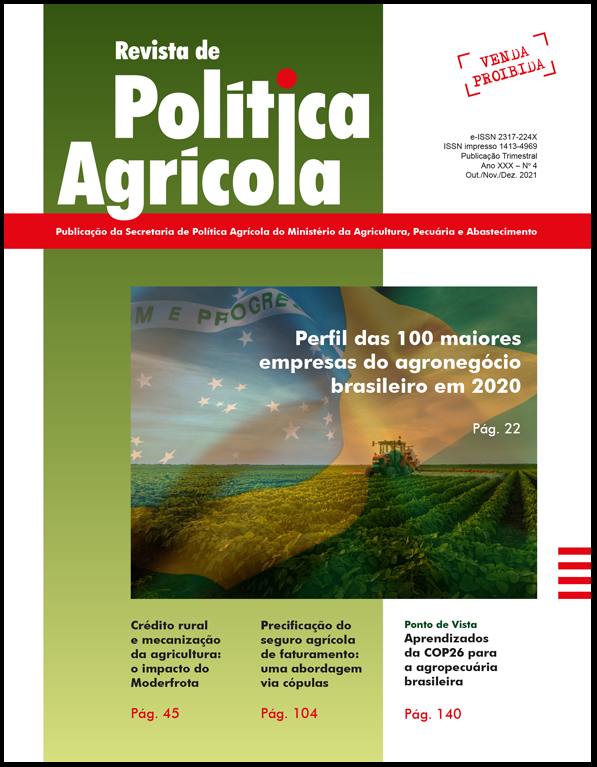Economic viability of coffee certifications for Brazilian producers
Keywords:
coffee production, production cost, price, yieldAbstract
The objective of this study was to assess the economic viability of adopting certifications for Brazilian coffee growers. The cost conditions of the most widespread certification processes in the country – Fairtrade, Orgânico, Rainforest, UTZ, and 4C – were assessed together with their contrast with potential gains related to the prices for producers. For data analysis, two profiles of family property were used: the mechanized and the manual ones. In a mechanized property, the price paid for arabica coffee in 2019 would cover the costs of all certifications. Orgânico certificate would be the one with the highest profit margin in this profile, from R$ 114.00 to R$ 137.73 per coffee bag. In a property with manual coffee cultivation, the price paid for arabica coffee would cover the costs of the Orgânico and UTZ certifications, and Orgânico certification would be the one with the highest profit margin, varying between R$ 2.54 and R$ 34.54. The results show that some certifications may become economically unfeasible, regardless of the seal, mainly in properties with great need for labor. Therefore, the most profitable certifications would be those with less costly seals and audits, which require less investment and adjustments to requirements, that is, certifications that do not increase the production costs.Downloads
Published
2021-12-30
How to Cite
Cabrera, L. C., & Caldarelli, C. E. (2021). Economic viability of coffee certifications for Brazilian producers. Revista De Política Agrícola, 30(4), 64. Retrieved from https://rpa.sede.embrapa.br/RPA/article/view/1651
Issue
Section
Artigos Científicos


